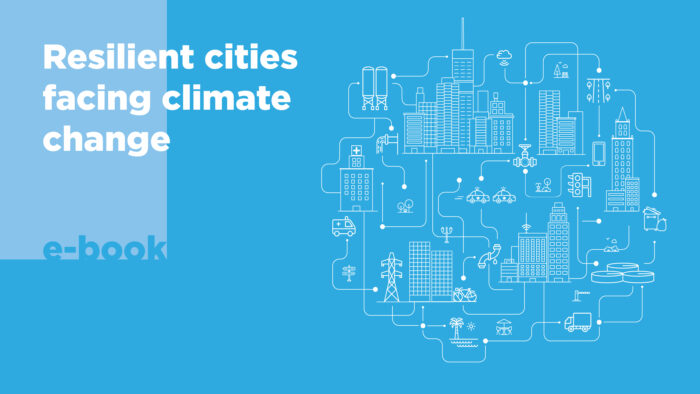Resilience
to cope with
climate change
in urban areas
The RESCCUE project aims to help urban areas around the world to become more resilient to climate change, improving their capability to anticipate, prepare for, respond to and recover from significant multihazard threats, with minimum damage.
RESCCUE Toolkit
The RESCCUE Toolkit includes a set of innovative datasets, methodologies, models and tools to analyse urban resilience based on a multisectoral approach. These tools will help cities with their climate change resilience strategy and will also improve their current capacity to cope with emergencies.
3 cities,
3 different challenges
These models and tools have been validated in three different cities, carefully selected by their representativeness of the European diversity in terms of climate type and city characteristics: Barcelona, Lisbon and Bristol.
Other results
RESCCUE Deliverables
Deliverables are additional outputs, such as reports, that must be produced at a given moment during the project’s lifetime. Within RESCCUE, several deliverables have been produced, which gather all the technical information related to the set of eight work packages (WPs) the project has been implemented through. Click on the link below and go to the bottom of the page to see all the RESCCUE public deliverables.
RESCCUE Maps
The maps developed within the RESCCUE project have been gathered in the Clarity project portal, a repository that compiles different case studies. Thanks to its powerful visualization platform, you can navigate through some of the RESCCUE project’s main results in the form of maps.
Scientific Publications
Scientific dissemination is vital to provide a stronger understanding of current research to the scientific community. RESCCUE has published several project-related papers in different peer-reviewed journal, as well as a special issue on the project published in the Sustainability Journal, entitled “Integrated assessment of climate change impacts and urban resilience: from climate and hydrological hazards to risk analysis and measures”. Click on the link below and go to the bottom of the page to see all the RESCCUE scientific publications.
Dissemination materials
The communication and dissemination of the project is such an important task that completes the research period and goes beyond it. Multiple activities and materials were organized and created in order to facilitate information about the project, its objectives and outcomes, and to promote the widest application of the tools and methodologies developed in other contexts and places.

